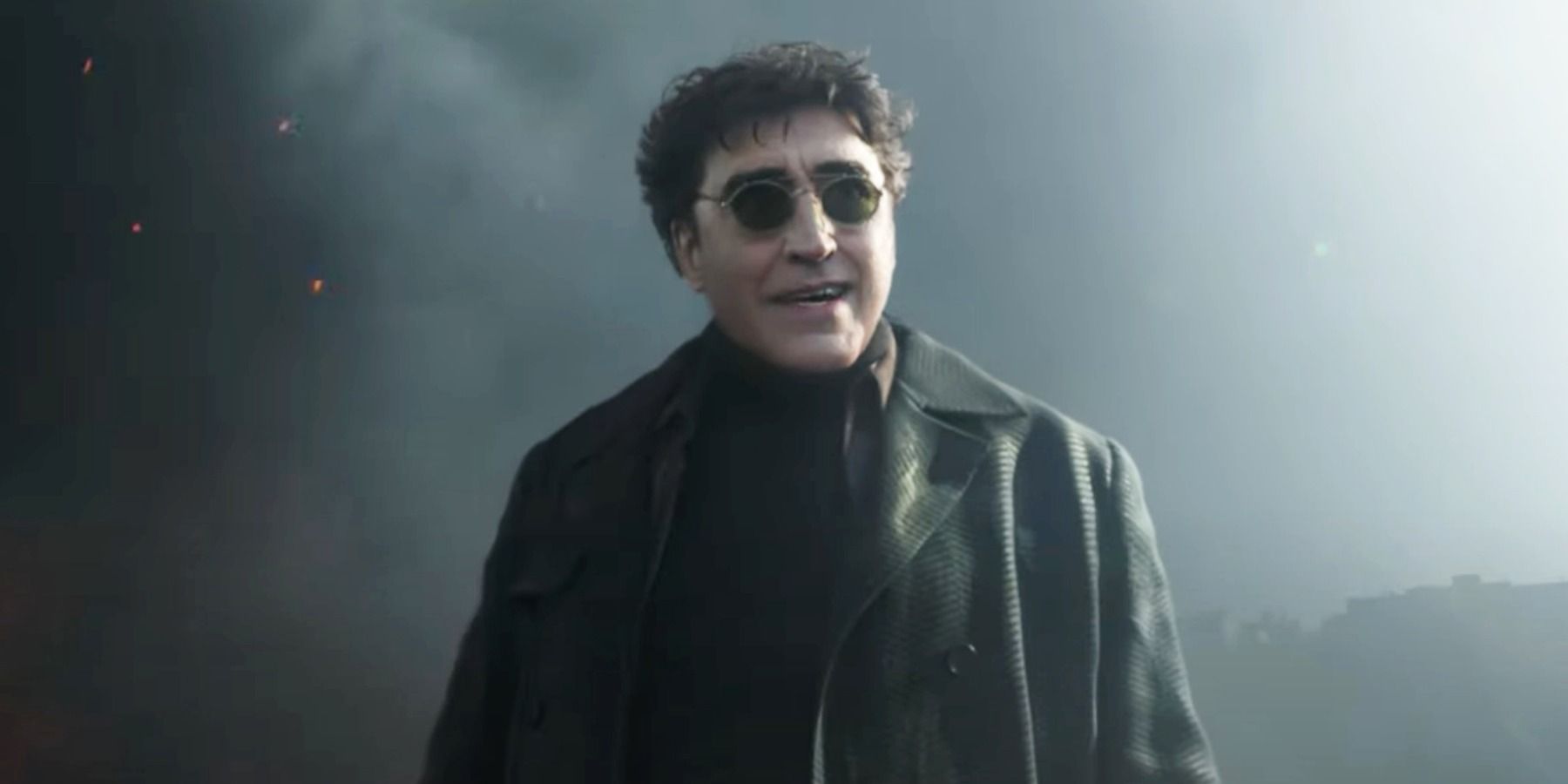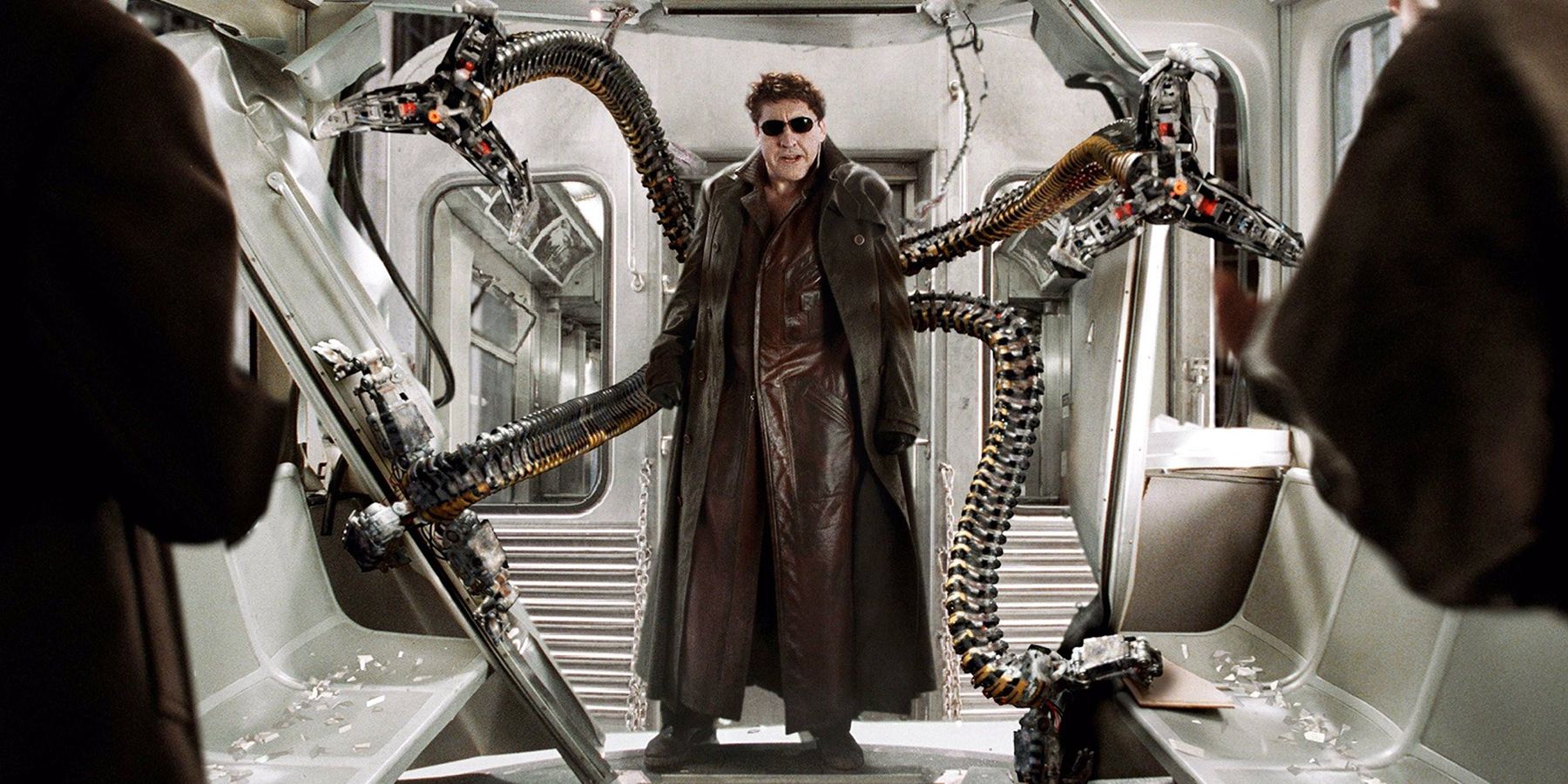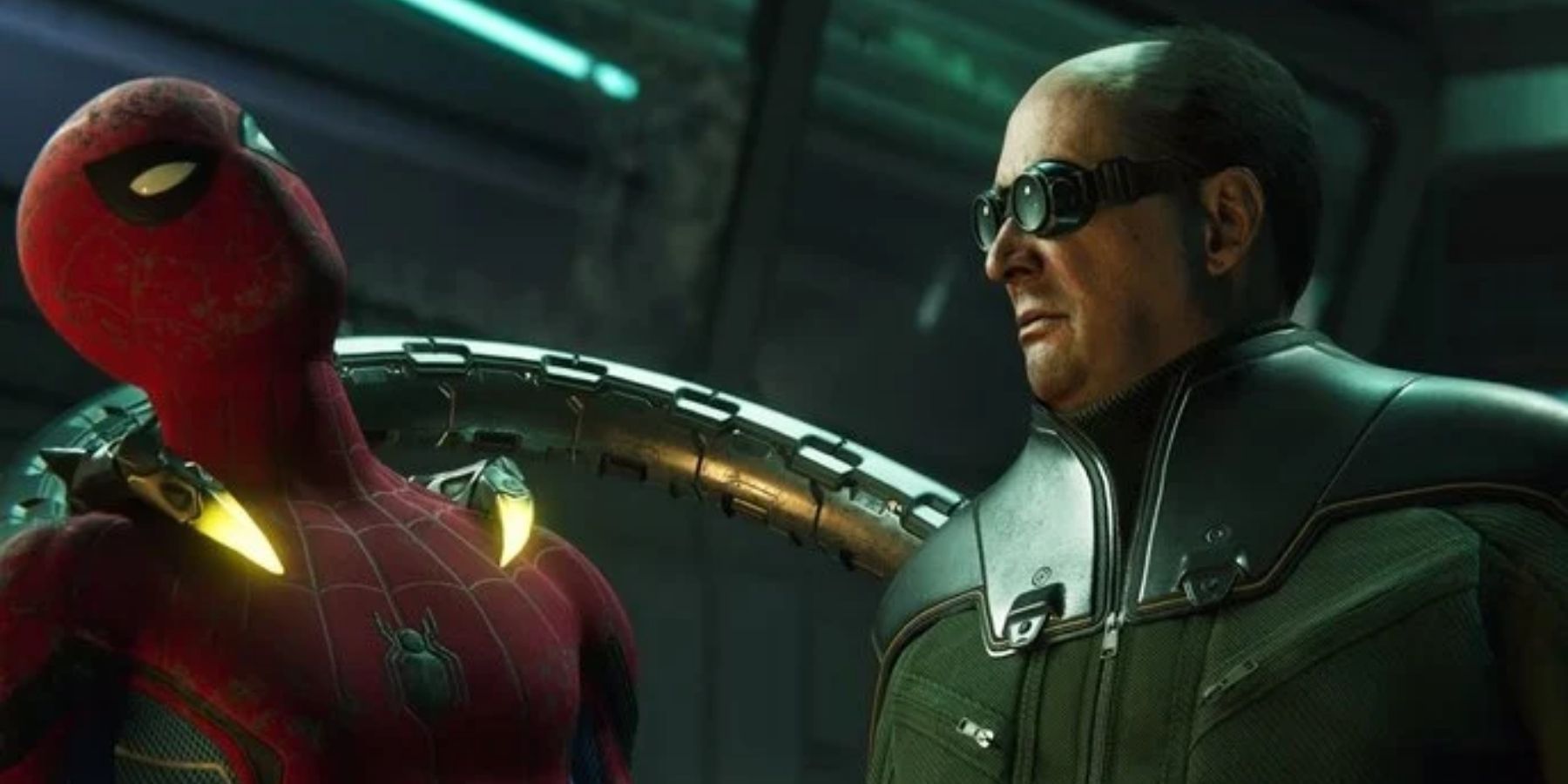When the first trailer for Spider-Man: No Way Home was released, fans everywhere were overjoyed to see the return of none other than Alfred Molina, reprising his role as Doctor Octopus from Spider-Man 2. But what is it about the metal-armed mad scientist that makes him one of Spider-Man’s most iconic enemies?
Spider-Man has one of the greatest rogues’ galleries in superhero history, rivaled only by Batman’s roster of villains. But out of all of Peter Parker’s deadly foes, few can claim to be quite so popular as Dr. Otto Gunther Octavius, aka Doctor Octopus (or just Doc Ock for short). Otto was created by Stan Lee and Steve Ditko, making his first appearance in 1963’s The Amazing Spider-Man #3 — and immediately, Doc Ock established himself as a special presence in Spider-Man’s nascent rogues’ gallery by becoming the first villain to ever defeat the webhead in battle.
Right from his first appearance, two of the most important aspects of Doctor Octopus’ character are quickly established: his mechanical arms and his status as a foil to Spider-Man. First of all, Doc Ock’s four metal tentacles are synonymous with his character — they’re the source of his marine-themed codename, as well as his deadliest weapons in battle. Otto’s tentacles are immediately portrayed as a nigh-impenetrable barrier, keeping their wielder away from harm while quickly demolishing Spider-Man with their incredible strength. But in Spidey’s second encounter with Ock, he manages to break through the villain’s defenses and knock him out cold with a single right hook. This is yet another aspect of Otto’s enduring appeal: the duality of his all-powerful robotic arms and his fragile human body. Despite the technological terror he commands, Otto Octavius is still only human.
Indeed, Ock is perhaps the most human of all Spider-Man’s foes, primarily due to his characterization and how it parallels Peter Parker himself. In his first appearance, Otto is little more than a generic mad scientist in terms of personality, with his motivation for villainy being nebulous and ill-defined at first — rather than something as straightforward as wealth or world domination, he instead seems driven by a general desire for power and control. As soon as he recovers from the lab accident that fuses him with his tentacles, Ock begins ranting maniacally about how he’s become the most powerful being in the world, that he’s finally the one in control, and that he’ll finally prove his superiority over his peers who mock and envy him. It’s hardly the most nuanced portrayal, but it’s definitely a familiar one.
From the start, it’s easy to draw parallels between Otto Octavius and Peter Parker: they’re both brilliant science geniuses who are outcasts among their peers, and are suddenly gifted superhuman power by a lab accident. And while both Peter and Otto immediately let their newfound power go to their heads, Otto never learns to use his power responsibly. Doctor Octopus is the person Spider-Man could have become if he continued to let his ego drive him — he’s arrogant and misanthropic, with a pathological need for control and an obsession with proving his superiority to others. In other words, he embodies all of Peter Parker’s worst traits, without any of his compassion and humility. Even his narcissistic boasting and faux-gentlemanly facade could be seen as a corruption of Spider-Man’s wisecracking showman persona.
But while Doctor Octopus may have started out as a typical evil genius, he didn’t stay that way forever. Later writers like Roger Stern, Tom DeFalco, Zeb Wells, and Dan Slott turned Otto into a more sympathetic figure, fleshing out his backstory and exploring the motives behind his evil deeds. In more recent years, Ock has gone from a power-mad megalomaniac to a tortured genius with a traumatic past, desperately trying to carve out a sense of order in his chaotic existence. Additions to his origin story revealed that Otto grew up as a social outcast with an abusive father and overbearing mother, recontextualizing his villainous schemes as a means of finally achieving respect from others and control over his own life — even if he must be feared as a criminal mastermind to get there. In the past decade, some writers have even toyed with the idea of Otto finding redemption as the Superior Spider-Man, using his need for order to protect others instead of controlling them. But despite his attempts to strive for the greater good, Doc Ock’s ego always leads him back towards the path of tyranny.
Outside the comics, Doctor Octopus’ most popular adaptations have also found great success by emphasizing his more sympathetic side. Both Alfred Molina’s Otto in Spider-Man 2 and William Salyers’ portrayal in the Marvel’s Spider-Man video game present Octavius as a kind and idealistic mentor to Peter Parker, whose descent into villainy is presented as the tragic downfall of a once-good man. While Molina’s performance perfectly encapsulates Otto’s sorrowful humanity, coldhearted ruthlessness, and wickedly classy charisma, the script struggles to tie these disparate elements together. Sam Raimi’s take on Doc Ock lacks the order-obsessed megalomania of his comic counterpart, instead blaming his evil deeds on his robotic tentacles driving him mad. As such, the sympathetic Otto Octavius and the charmingly menacing Doctor Octopus feel like completely different characters, without a solid motive to unite the two halves of Ock’s personality.
However, William Salyers’ Otto in Insomniac Games’ take on Spider-Man doesn’t have that problem. This iteration of Ock is driven solely by a thirst for revenge against Norman Osborn, the former friend who ruined his career and covered up countless crimes along the way. Salyers’ Otto plays up the vengeful resentment of his comic counterpart, repurposing the character’s craving for control into a burning need for vengeance. Ock is ostensibly motivated by a sense of justice, punishing Norman for his sins — but since Otto’s plan for revenge involves causing mass destruction and killing countless innocents, Peter has no choice but to stop his former mentor.
While Salyers’ portrayal of Doctor Octopus lacks the more theatrical flair of other versions, he makes up for it with sheer menace and nuance. More than any other version, this Ock is a true dark reflection of Spider-Man, as emphasized by one of his final lines: “Men like us have a duty, a responsibility, to use our talents in the service of others. Even if they don’t appreciate it. We have to do what’s best for those beneath us, whether they understand it or not.” All the power and responsibility, but tainted by a narcissistic need for control.
Whereas many of Spider-Man’s foes are just common criminals with colorful costumes, Doctor Octopus stands out as a true evil mastermind, with the cunning and ambition to cement himself as the de facto leader of Spider-Man’s rogues’ gallery. As the traditional leader of the Sinister Six, Otto’s almost always in charge whenever Peter’s foes join forces. The Green Goblin may be Spidey’s most personal nemesis, but Doc Ock is his greatest obstacle, his villainous foil, and the embodiment of what Peter could have become without the hope and compassion that make him a true hero. For those reasons and many more, Doctor Octopus is truly a superior supervillain.



